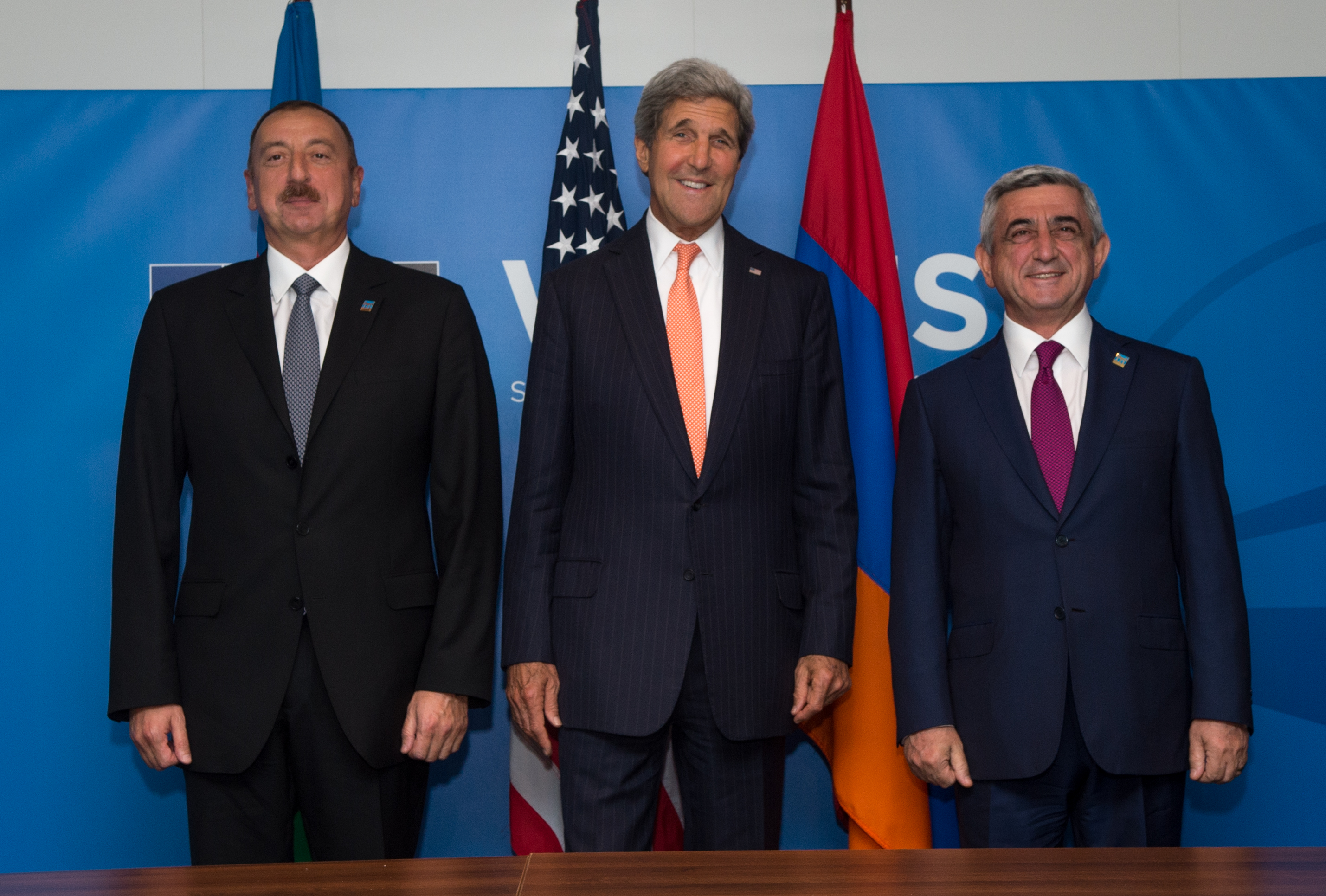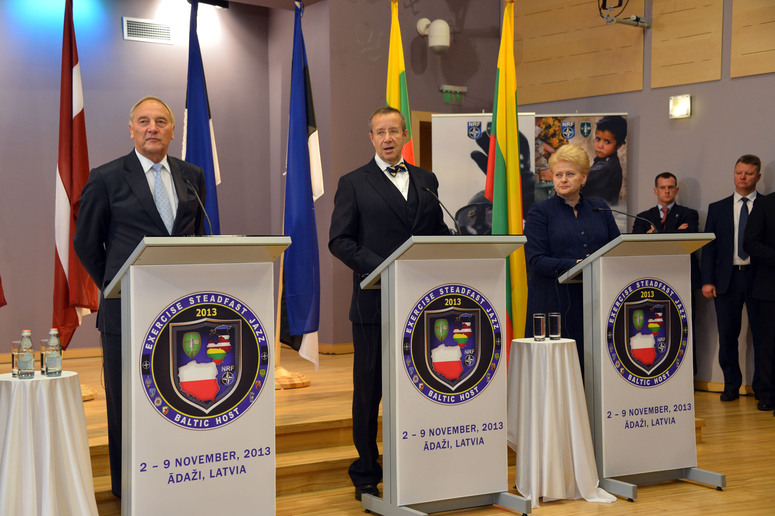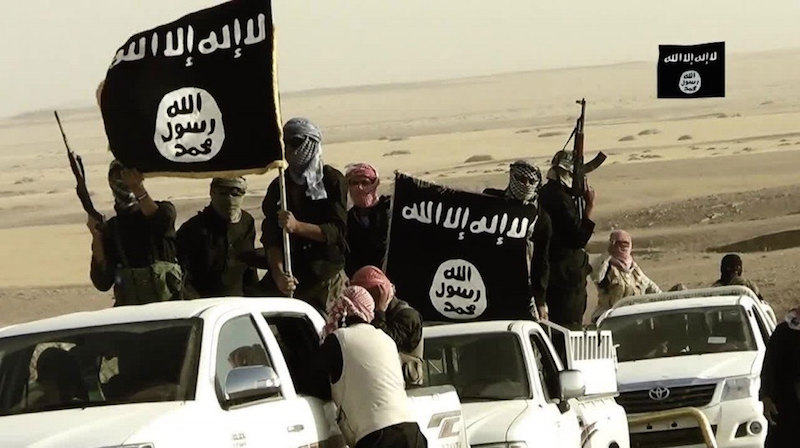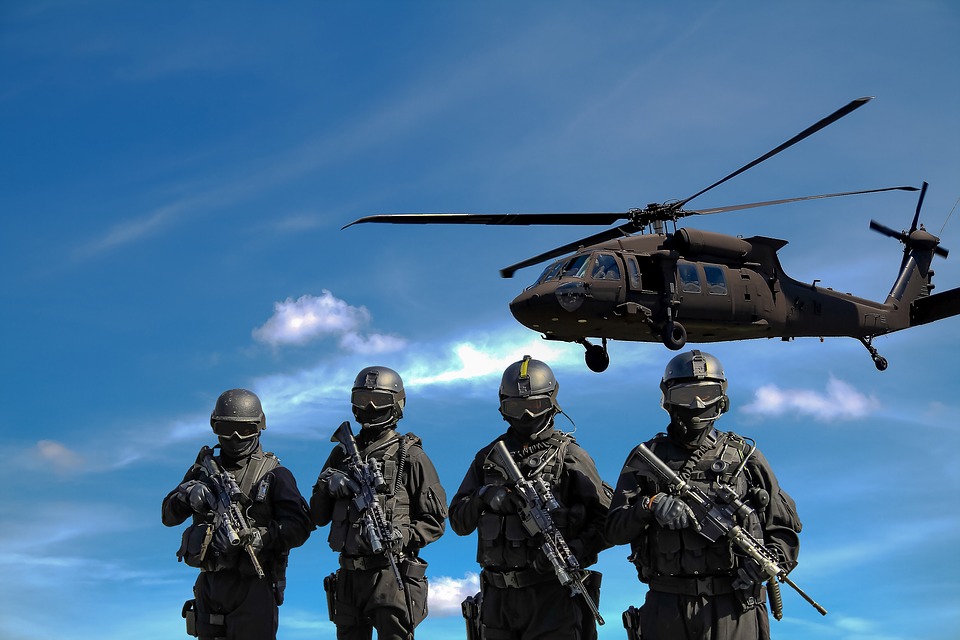In early April of this year, the worst conflict in two decades erupted between Azerbaijan and Armenia along the contested borders of Nagorno-Karabakh. Under the Soviet Union, Nagorno-Karabakh was an autonomous governing zone within the Soviet Socialist Republic of Azerbaijan. However, the population of the territory was 95 percent ethnically Armenian. Tensions increased throughout the dissipation of Soviet control in the 1980s, later breaking out into conflict in 1991 when the autonomous, but territorially Azerbaijani, Nagorno-Karabakh attempted to formally join Armenia. The conflict resulted in about 20,000-30,000 deaths, and the displacement of over one million people from their homes until a Russian-brokered ceasefire took effect in 1994.
Following this conflict, the Organization for Security and Cooperation in Europe (OSCE) established the Minsk Group, a forum co-chaired by the United States (US), France, and Russia, with a broad mandate to facilitate peace. Over 20 years later, and Nagorno-Karabakh has a limited international mediation presence and is fraught with ceasefire violations on both sides. This could have far-reaching regional implications should the conflict devolve into a full-scale war. Given the resolute support of Turkey to Azerbaijan, and the collective security guarantee afforded to Armenia as a member of the Russian-led Collective Security Treaty Organization (CSTO), Nagorno-Karabakh is a regional security liability.
In response to the conflict, NATO issued a statement on April 5, 2016, noting that there is no military solution to this conflict, and stressed the need for a comprehensive settlement under the auspices of the Co-Chairs of the OSCE Minsk Group. Throughout the development of the Nagorno-Karabakh conflict, NATO has largely maintained a policy of neutrality, stressing the primacy of the OSCE in this matter. With both the recent outbreak of violence and the continued animosity between Armenia and Azerbaijan, what can NATO do to facilitate peace in Nagorno-Karabakh?
NATO and Nagorno-Karabakh
NATO has maintained good relations with both Armenia and Azerbaijan, hosting each in the Euro-Atlantic Partnership Council (EAPC), and coordinating Partnership for Peace (PfP) activities with both states. Furthermore, NATO has established Individual Partnership Action Plans (IPAP) with both Armenia and Azerbaijan, which has served as the basis for cooperation on political and security issues, relations with neighbors, democratic standards, the rule of law, counter-terrorism, and the fight against corruption.
Despite maintaining strong relations with both nations, NATO’s 2008 Bucharest Declaration fomented some controversy by noting its support for the “territorial integrity, independence and sovereignty of Armenia, Azerbaijan, Georgia, and the Republic of Moldova.” The statement supports Azerbaijan’s territorial claims to Nagorno-Karabakh, and therefore prompted Armenian President Serzh Sarkisian to boycott NATO’s 2010 Lisbon Summit, which ultimately reiterated the controversial clause in the summit’s declaration.
Controversy aside, NATO has largely played a neutral role throughout the Nagorno-Karabakh conflict and has continually deferred to the leadership of the OSCE Minsk Group to resolve the conflict.
What NATO Can Do
At present, the central tenets of the Minsk Group mandate have not come to fruition, most notably, with the establishment of a multinational OSCE peacekeeping force. In lieu of a proper peacekeeping force, the Line of Contact (LoC) between Armenia and Azerbaijan is kept intact by military deterrence, which has been a shaky foundation for peace, with its subsequent constant ceasefire violations that have varyingly evolved into military altercations. The need for an internationally-mediated peacekeeping force was also one of the Basic Principles established by the Co-Chairs of the Minsk Group in November 2007. In a recent Chatham House report on the conflict, Associate Fellow of the Russia and Eurasia Programme, Laurence Broers notes that “The inability to install a credible ceasefire support infrastructure is the single most debilitating weakness of the international mediation effort today.”
Evidenced by the recent clashes in Nagorno-Karabakh, the territory is not a frozen conflict, and has the ability to rapidly deteriorate into a full-scale war. As the Transatlantic region is already strained by the ongoing refugee crisis, as well as a multiplicity of conflicts along its periphery, the Alliance cannot afford another regional conflict. Given that this conflict may have broader implications for NATO-Russia relations, the Alliance should continue to support efforts towards a resolution.
To this end, NATO can utilize its robust platform for engagement with both Armenia and Azerbaijan. Through NATO’s IPAP program, the Alliance can better orient IPAP commitments to coincide with the goals of the Minsk Mandate, therefore applying diplomatic pressure conducive to the mandate of the OSCE. As it pertains to a critically important multinational peacekeeping presence, NATO members should continue to respect the primacy of the OSCE. However, the Alliance can offer enhanced support to the realization of this project.
With a wealth of experience in peacekeeping, NATO can contribute experts and best practices to the formation of a supervisory peacekeeping presence, as well as lobby for an enhanced group presence to be spearheaded by the OSCE Minsk Group. Through a proactive stance towards Nagorno-Karabakh, NATO can not only maintain neutrality, but also work to develop better stabilization mechanisms in the conflict zone – measures that may also assist long-term prospects for peace.




